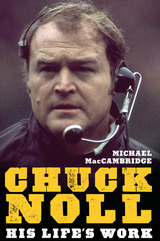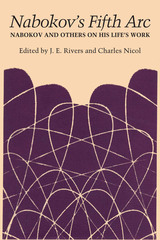
Chuck Noll did not need a dramatic public profile to be the catalyst for one of the greatest transformations in sports history. In the nearly four decades before he was hired, the Pittsburgh Steelers were the least successful team in professional football, never winning so much as a division title. After Noll’s arrival, his quiet but steely leadership quickly remolded the team into the most accomplished in the history of professional football. And what he built endured well beyond his time with the Steelers – who have remained one of America’s great NFL teams, accumulating a total of six Super Bowls, eight AFC championships, and dozens of division titles and playoff berths.
In this penetrating biography, based on deep research and hundreds of interviews, Michael MacCambridge takes the measure of the man, painting an intimate portrait of one of the most important figures in American football history. He traces Noll’s journey from a Depression-era childhood in Cleveland, where he first played the game in a fully integrated neighborhood league led by an African-American coach and then seriously pursued the sport through high school and college. Eventually, Noll played both defensive and offensive positions professionally for the Browns, before discovering that his true calling was coaching. MacCambridge reveals that Noll secretly struggled with and overcame epilepsy to build the career that earned him his place as “the Emperor” of Pittsburgh during the Steelers’ dynastic run in the 1970s, while in his final years, he battled Alzheimer’s in the shelter of his caring and protective family.
Noll’s impact went well beyond one football team. When he arrived, the city of steel was facing a deep crisis, as the dramatic decline of Pittsburgh’s lifeblood industry traumatized an entire generation. “Losing,” Noll said on his first day on the job, “has nothing to do with geography.” Through his calm, confident leadership of the Steelers and the success they achieved, the people of Pittsburgh came to believe that winning was possible, and their recovery of confidence owed a lot to the Steeler’s new coach. The famous urban renaissance that followed can only be understood by grasping what Noll and his team meant to the people of the city. The man Pittsburghers could never fully know helped them see themselves better.
Chuck Noll: His Life’s Work tells the story of a private man in a very public job. It explores the family ties that built his character, the challenges that defined his course, and the love story that shaped his life. By understanding the man himself, we can at last clearly see Noll’s profound influence on the city, players, coaches, and game he loved. They are all, in a real sense, heirs to the football team Chuck Noll built.

In his autobiography Speak, Memory, Vladimir Nabokov compared his life to a spiral, in which “twirl follows twirl, and every synthesis is the thesis of the next series.” The first four arcs of the spiral of Nabokov’s life—his youth in Russia, voluntary exile in Europe, two decades spent in the United States, and the final years of his life in Switzerland—are now followed by a fifth arc, his continuing life in literary history, which this volume both explores and symbolizes.
This is the first collection of essays to examine all five arcs of Nabokov’s creative life through close analyses of representative works. The essays cast new light on works both famous and neglected and place these works against the backgrounds of Nabokov’s career as a whole and modern literature in general. Nabokov analyzes his own artistry in his “Postscript to the Russian Edition of Lolita,” presented here in its first English translation, and in his little-known “Notes to Ada by Vivian Darkbloom,” published now for the first time in America and keyed to the standard U.S. editions of the novel. In addition to a defense of his father’s work by Dmitri Nabokov and a portrait-interview by Alfred Appel, Jr., the volume presents a vast spectrum of critical analyses covering all Nabokov’s major novels and several important short stories. The highly original structure of the book and the fresh and often startling revelations of the essays dramatize as never before the unity and richness of Nabokov’s unique literary achievement.
READERS
Browse our collection.
PUBLISHERS
See BiblioVault's publisher services.
STUDENT SERVICES
Files for college accessibility offices.
UChicago Accessibility Resources
home | accessibility | search | about | contact us
BiblioVault ® 2001 - 2024
The University of Chicago Press









